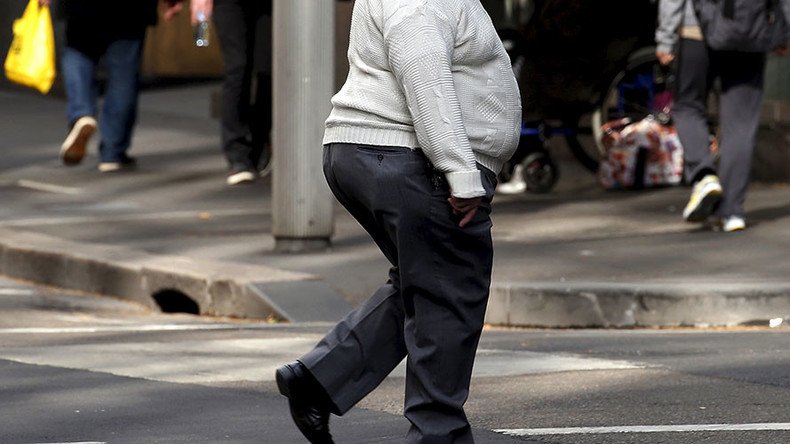Increasing obesity may cause 700,000 new cancer cases in UK by 2035

Three in four adults in the UK are projected to become overweight by 2035, according to a report by Cancer Research UK and the UK Health Forum. The distressing obesity trend may result in almost 700,000 additional cancer cases.
In fewer than 15 years, the number of obese people will exceed those considered simply overweight, and by 2035 some 72 percent of the UK adult population will be overweight or obese, the report warns. The research used current and historic data to predict the future figures given that the worrisome trend remains unchanged.
We need urgent action on #obesity: if trends continue, by 2035 almost 4 in 10 adults will be obese pic.twitter.com/6n8jVn6t31
— Cancer Research UK (@CR_UK) January 7, 2016Some 670,000 further people could develop cancer connected with obesity over that period, according to the projections. Meanwhile slowing the obesity growth by just 1 percent annually can reduce this number by some 64,000, potentially saving thousands of lives.
Obesity is known to increase the risk of almost a dozen types of cancer, including breast, pancreas, kidney, liver, prostate and ovarian cancers. Obesity currently affects the least well-off, with some 45 percent of men and women on low incomes set to become obese by 2035.
Why preventing #obesity makes economic sense from @CR_UKhttps://t.co/QrKJpOs3bK#foodrevolution#foodrevolutionpic.twitter.com/jYhYt88oFB
— Food Revolution (@FoodRev) January 7, 2016Apart from the skyrocketing cancer risks, the report details other ailments which could be triggered by obesity such as millions of new cases of type 2 diabetes, coronary heart disease and strokes. All in all, the NHS would have to fork out an additional 2.5 billion pounds to address growing obesity-related illnesses.
The report suggested addressing the issue via a childhood obesity strategy, as it is no secret that the issue of overweight kids is becoming more and more overwhelming, and these are very likely to turn into obese adults.
Cancer Research UK has already urged the British government to ban the junk food adverts on TV before 9:00pm and review online marketing of unhealthy foods and drinks which target kids. Also, they called on the authorities to extend the food labeling and introduce a 20pence per liter tax on sugary drinks.
“Kids are bombarded with advertisements for unhealthy food,” said Alison Cox, director of cancer prevention at Cancer Research UK. “It’s vital the Government restricts this kind of advertising if we are to give our children the chance for better and healthier lives.”
Many celebrities joined the cause – for instance, world-renowned chef Jamie Oliver said that “food education is key” to preventing the rising trend in obesity in the UK and across the world.“If governments take children’s health more seriously and use education to inspire them we could have a huge impact on their health and wellbeing.”
Obesity stories in press today even more startling considering 41% unaware that #obesity linked to cancer risk #ICANpic.twitter.com/oVJY9cfome
— WCRF UK (@WCRF_UK) January 7, 2016“We’re raising a generation of children in a society where junk food is cheap, widely advertised, and packed full of sugar so it's difficult to teach them how to make healthy choices. We need to give these kids a chance to be healthier adults – starting with a tax on sugary drinks to tackle obesity and diet-related disease in young people,” Oliver added.
The report makes a “very clear economic case” for why we must act now to turn the rising tide of obesity, believes chief executive officer at the UK Health Forum Paul Lincoln.
“The government’s planned childhood obesity strategy is a golden opportunity to tackle the availability, affordability and promotion of unhealthy foods that is driving the current crisis in children’s diets. This must become part of a broader national action plan on diet and health for the whole population.”
Strong link between being overweight or obese and increased risk of 10 cancers #ICANhttps://t.co/rrF84Dg778pic.twitter.com/k0eDTSYjCz
— WCRF UK (@WCRF_UK) January 7, 2016











